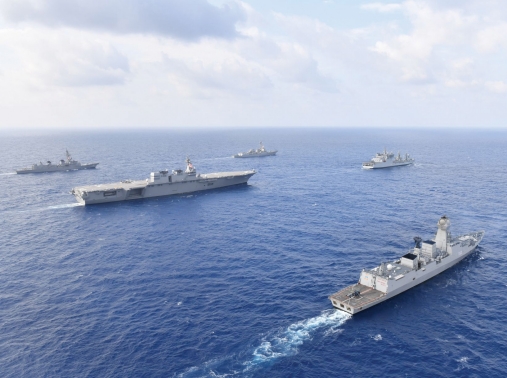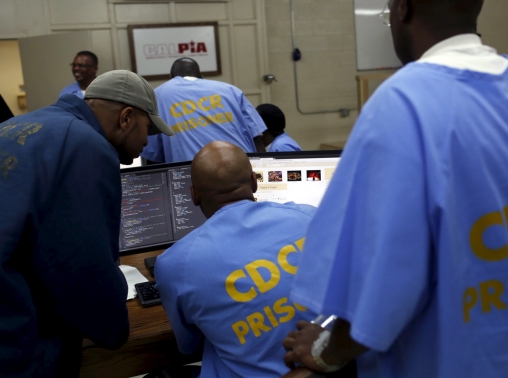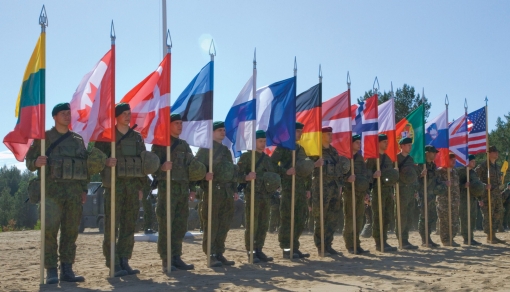|
|
RAND research and commentary on the issues that matter most
|
Aug 29, 2019
|
|
|
|
|
Image by serge01/Adobe Stock
|
|
|
|
U.S. deaths that involve synthetic opioids like fentanyl have increased from roughly 3,000 in 2013 to more than 30,000 in 2018. What caused this surge? Where are things headed? And what options should policymakers consider?
A new report—the first major release from a RAND initiative to examine America's opioid crisis—assesses the past, present, and future of synthetic opioids. It finds that the synthetic opioid problem is unique, because it's largely driven by supplier decisions, rather than user demand. This means that policymakers will likely need to pursue innovative strategies to reverse the trend. Limiting the response to existing approaches may condemn many people to early deaths. Read more »
|

|
|
Flowers and candles at a memorial five days after the shooting at a Walmart in El Paso, Texas, August 8, 2019. Photo by Callaghan O'Hare/Reuters
|
|
Three recent mass shootings in the United States happened in the span of one week, leaving 34 dead and 53 wounded. Many citizens have called on Congress to take action that guards against future attacks. But there's no need to wait for new laws, say RAND experts. There are steps that could be taken right away—and they're unlikely to be controversial. These recommendations focus on better detecting attacks in advance, lowering casualties when they happen, and modifying political rhetoric.
Read more »
|
|

|
|
Women researchers at RAND designed a new game, which plays out on the Korean Peninsula, specifically for teen girls. Photo by Dori Gordon Walker/RAND Corporation
|
|
Earlier this summer, RAND hosted an event with the nonprofit Girl Security to introduce teen girls to wargaming. The girls acted as generals for a day, learning about strategy, asymmetric warfare, and the dire consequences of real-life conflict. Most importantly, the event may have inspired some of tomorrow's national security leaders. Becca Wasser, one of the RAND analysts who designed the game, says that she and her colleagues are trying to shape a future where "a woman analyst leading a wargame is no longer a novelty."
Read more »
|
|

|
|
The USS William P. Lawrence travels through the South China Sea with ships from India, Japan, and the Philippines, May 5, 2019. Photo by Japan Maritime Self-Defense Force
|
|
Over the last two decades, U.S. allies and partners in the Indo-Pacific have been expanding their defense activities and cooperating with each other in new ways. Why are they branching out? How are these activities affecting stability in the region? And what are the implications for U.S. national security? A new RAND report analyzes the effects of these evolving regional ties. Notably, there is the potential for an overall positive outcome from countries in the region cooperating more than ever before.
Read more »
|
|

|
|
Prisoners gather around a computer following a graduation ceremony from a coding program, San Quentin, California, April 20, 2015. Photo by Robert Galbraith/Reuters
|
|
Providing access to college education for incarcerated adults can help reduce U.S. recidivism rates. That's according to a RAND paper out this week. Correctional education programs are also cost-effective. For every dollar invested in these programs, taxpayers save an average of four to five dollars in reincarceration costs. Restoring access to Pell Grants could help fund these programs; other options should be considered, too.
Read more »
|
|

|
|
Soldiers from NATO member states take part in the opening ceremony of Saber Strike 2015 in Pabrade, Lithuania, June 8, 2015. Photo by Sgt. James Avery/U.S. Army
|
|
In 2014, Russia annexed the Crimean Peninsula and began military operations in Eastern Ukraine. This prompted renewed concern about future aggression from Moscow. What would happen, for example, if Russia attacked a NATO ally in the Baltics? That's the topic of a new RAND report. The authors identify 13 factors that would affect each ally's decision to participate in a military response to a Russian attack. They also recommend ways to reduce vulnerability to Russian influence and increase cohesion among NATO members.
Read more »
|
|
|
You already get the latest insights from RAND in your inbox. Why not your earbuds?
Policy Currents is now available as a weekly podcast. Five minutes, every Friday.
Subscribe now »
|
|
|
|
|